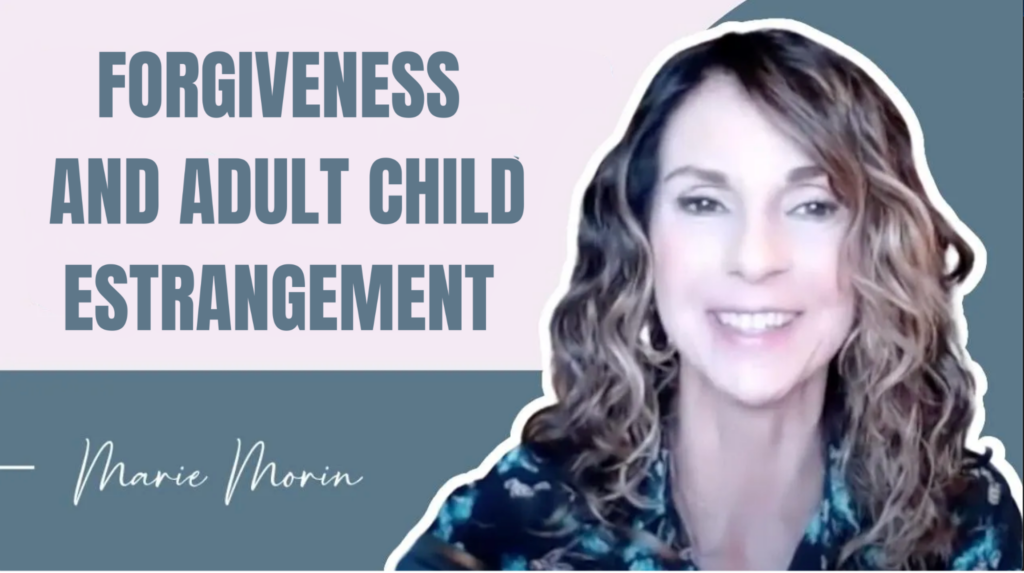Parenthood is a journey filled with joy, challenges, and unexpected turns. One of the most heart-wrenching challenges some parents face is adult child estrangement. In this article, we’ll explore the transformative power of forgiveness, the importance of setting boundaries, and the key elements to navigate this delicate terrain.
The Power of Forgiveness and Self-Reflection
Begin with forgiveness, a balm for the soul. It doesn’t condone past actions but frees you from the anchors of resentment and anger. By choosing forgiveness, you open the door to healing and allow yourself to move forward with grace and peace.
Forgiving yourself is a profound act of self-love and acceptance. It involves acknowledging past mistakes without allowing them to define your present or dictate your future. Embracing self-forgiveness opens a pathway to personal growth, resilience, and a more profound sense of inner peace.
Remember, the door to healing swings both ways. As you open it to forgive others, swing it open to forgive yourself. This self-compassion becomes the cornerstone for genuine, transformative healing and paves the way for a future filled with grace and understanding.
Self-reflection is the companion on this journey. Take a moment for self-reflection. Acknowledge your role in the estrangement. Self-awareness is the first step toward reconciliation. Forgiveness isn’t about forgetting but choosing to journey forward, unburdened by resentment. Embrace the opportunity for personal growth as you navigate understanding, compassion, and the renewal of connections.
Empathy and Compassion
Seek to understand your adult child’s perspective. Empathy becomes a bridge to comprehension, fostering an environment of healing. Show compassion not only to your child but also to yourself. You can build a personal connection by leaning into the foundation of compassion.
Setting Boundaries
Forgiveness takes center stage in the intricate dance of healing and reconciliation, but it doesn’t mean abandoning the principles of self-respect and well-being. Establishing clear boundaries is the unsung hero of this narrative – crucial for rebuilding trust and nurturing a healthy relationship moving forward.
While forgiveness is a powerful and transformative choice, it doesn’t entail surrendering to mistreatment or abuse. It’s essential to recognize that boundaries are not walls to keep love out but rather fences that define a safe space for both parties to thrive.
Communicate openly about your expectations and be willing to engage in a dialogue that respects the needs and concerns of everyone involved. Boundaries, when set with compassion and clarity, serve as guideposts for navigating the complex terrain of relationships.
Open Communication
Initiate open and honest communication, free from blame or accusation. Share your positive feelings towards your adult child and be genuinely interested in their perspective. Validation of their emotions, even if you don’t entirely agree, can pave the way for mutual understanding.
Seeking Professional Help
Consider family therapy or estrangement coaching as avenues for constructive dialogue. A neutral third party can offer insights and guidance that may be challenging to achieve independently. Professional help provides a safe space for both parties to express themselves.
Patience and Persistence
Rebuilding a relationship is a marathon, not a sprint. Exercise patience and persistence in your efforts. Celebrate small victories, no matter how incremental, and acknowledge progress even if it seems slow. Every step forward is a step toward healing.
Learning and Growth
View this experience as an opportunity for personal growth and self-improvement. Recognize that forgiveness is an ongoing process with occasional setbacks. Learn from these setbacks and use them as steppingstones toward a better future.
Hope and Healing
Hold onto the hope of reconciliation, but also find contentment and joy in your life, irrespective of the outcome. Healing is a journey that involves both individual and collective efforts. Embrace the process, and let hope guide you toward a brighter, more connected future. In some cases, reconciliation is impossible, mainly when there has been abuse. However, the decision to choose healing is available and essential for all individuals as they do the work to intentionally move forward to find joy and purpose in their lives.
Many of my readers have communicated their disappointment and anger regarding the choice of their adult child to distance themselves. Your perspective and how you grieve the relationship status is valid.
My hope in this article is to foster hope and clarity to those who find themselves wanting something to change. Obviously, the only change we can control is our actions and perspective on any challenging matter. For those who find themselves wanting relief from the distress, forgiveness extended to others – and if warranted to the self – is a meaningful and effective means of improving one’s quality of life.

